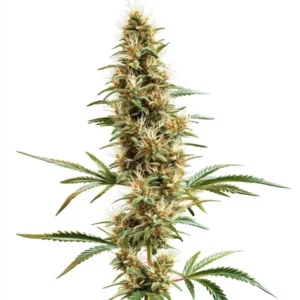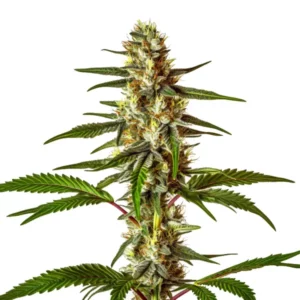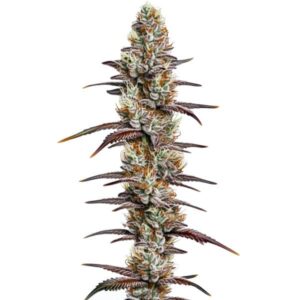
CBG and Inflammation: Benefits & Research Insights
Beginnings of CBG
What is CBG?
CBG, or cannabigerol, stands as one of the lesser-known cannabinoids present in the cannabis plant. Often called the “mother” of all cannabinoids, CBG actively creates precursors that lead to other compounds such as THC and CBD. Many researchers and enthusiasts appreciate CBG for its unique capacity to support various body processes without inducing intoxication. This non-psychoactive nature enables users to experience its therapeutic benefits while avoiding the typical high, thereby appealing to those who favor a sober wellness experience.
In terms of chemical composition, CBG shows strong similarities to CBD and THC, yet it interacts with the endocannabinoid system in distinct ways. This system governs numerous physiological processes, including immune response and inflammation. Researchers and practitioners value CBG for its potential to contribute to balanced body functions, and some studies even suggest that CBG inflammation may play a significant part in mitigating inflammatory responses.
Recommended Strains
2046 Fast Version
|
|
THC | 20% - 26% (Medium) |
|
|
Type | Fast Flowering |
|
|
Yield | High |
|
|
Phenotype | 20% Indica / 80% Sativa |
Banana Cream
|
|
THC | 28% - 30% (High) |
|
|
Type | Feminized |
|
|
Yield | Medium |
|
|
Phenotype | 70% Indica / 30% Sativa |
Comparison with Other Cannabinoids
When contrasting CBG with cannabinoids like THC and CBD, one discovers clear disparities in effects and benefits. THC attracts attention for its psychoactive impact, while CBD finds popularity due to its anti-inflammatory and anxiolytic properties. Meanwhile, CBG occupies a unique space by not producing a high yet offering a spectrum of potential benefits. This unique profile distinguishes CBG among its peers and sparks growing interest in alternative wellness applications.
Scientific reports suggest that CBG can boost the overall effectiveness of cannabinoids via what experts call the entourage effect, where combined use yields stronger benefits. Some evidence even indicates that CBG may elevate the anti-inflammatory properties of CBD, creating a more comprehensive strategy for managing inflammation. Users appreciate such synergy and consider the interplay a promising path for innovative treatments, including precise approaches to CBG inflammation.
Promos & Deals
Anti-inflammatory Properties
Mechanisms of Action
CBG demonstrates powerful anti-inflammatory properties by engaging directly with the endocannabinoid system, particularly targeting CB2 receptors that regulate immune responses. By actively binding to these receptors, CBG helps control the immune system and dampen inflammatory signals. This direct action leads to a decrease in the production of pro-inflammatory cytokines, which actively contributes to the suppression of chronic inflammation and tissue stress.
Medical experts and researchers identify that this interactive process supports better overall health by mitigating conditions that arise from ongoing inflammation. Studies have shown that when cells encounter CBG inflammation, they reduce the release of harmful signals, thus preserving tissue integrity and function. This dynamic mechanism offers promising prospects for therapeutic interventions that address chronic inflammatory conditions.
Evidence from Preclinical Studies
Numerous preclinical studies have examined the anti-inflammatory effects of CBG with encouraging results. One notable study using mouse models of inflammatory bowel disease revealed that CBG significantly reduced inflammation markers while improving gut health. Findings like these demonstrate that CBG actively lessens harmful inflammatory processes and supports better physiological balance.
Further investigations explored how CBG protects neurons from inflammatory damage in cases of neuroinflammation. The robust reduction of inflammatory markers in these studies confirms that CBG inflammation, when properly managed, can offer protective benefits in the nervous system. Researchers now move forward with more advanced clinical trials to verify and expand on these promising outcomes.

Therapeutic Applications
Potential Medical Benefits
Given its potent anti-inflammatory properties, CBG holds promise for a variety of therapeutic applications. Patients with conditions like arthritis, inflammatory bowel disease, or fibromyalgia might experience relief from chronic pain and discomfort through targeted CBG treatments. Medical professionals suggest that incorporating CBG can actively support improved quality of life, thanks to its influence on reducing inflammation and modulating immune responses.
Additionally, evidence shows that CBG may improve skin conditions such as acne and psoriasis by addressing the core inflammatory processes. Many users report clearer skin and improved texture when they include CBG in their natural wellness routines. This direct intervention in managing inflammation further confirms the potential of CBG inflammation as a beneficial factor for overall health management.
Conditions Targeted by CBG Treatment
CBG’s impressive ability to fight inflammation makes it a potential candidate for treating many chronic conditions. Patients with arthritis often experience relief from joint pain and stiffness, while those with inflammatory bowel disease see improvements in digestive function. Medical practitioners actively recommend treatments that target specific inflammatory processes, as optimizing CBG inflammation can result in better patient outcomes.
Beyond joint and gut issues, early studies suggest that CBG may also help in cases of neurological disorders such as multiple sclerosis and Alzheimer’s disease. By reducing brain inflammation, CBG fosters an environment where nerve cells maintain optimal function and survival. Such targeted approaches to managing inflammation highlight the breadth of CBG’s therapeutic potential and encourage further exploration in clinical settings.
Research and Clinical Trials
Current Research Panorama
Increasing interest in CBG has spurred a wave of research initiatives dedicated to exploring its benefits. Current scientific studies actively investigate how CBG can modulate immune responses and reduce inflammation in various disease models. Researchers use advanced techniques to measure how effectively CBG inflammation assists in alleviating symptoms of chronic conditions, thereby broadening our treatment options.
Ongoing clinical trials in human subjects assess the safety and efficacy of CBG for diverse applications. These studies generate valuable data that help optimize dosing strategies and usage protocols. Medical experts and scientists collaborate closely, aiming to translate laboratory insights into practical therapies that effectively utilize CBG inflammation for better patient care.
Future Directions in CBG Research
The future of CBG research shines brightly as scientists explore untapped potentials and novel therapeutic uses. Continued investigations will focus on deepening our knowledge of how CBG interacts with the endocannabinoid system to regulate inflammation. Researchers plan to develop targeted treatments that harness precise mechanisms of CBG inflammation to achieve optimal health outcomes while minimizing side effects.
Furthermore, researchers expect that combining CBG with other cannabinoids may deliver synergistic benefits, thus enhancing overall therapeutic efficacy. The evolving market and increasing public interest inspire additional investments in large-scale clinical trials, which will further define the capabilities and limitations of CBG inflammation in the treatment of chronic disorders.
Usage and Dosage Considerations
How to Incorporate CBG
Many individuals incorporate CBG into their daily routines to potentially enhance various health functions. CBG arrives in several forms, including oils, capsules, and edibles, which offer users flexibility in how they consume this cannabinoid. People appreciate that using CBG actively supports their efforts to manage inflammation and maintain balanced bodily functions. One can seamlessly integrate CBG supplements into breakfast smoothies or evening teas to enjoy their benefits regularly.
For those new to cannabinoids, experts recommend beginning with a low dose and gradually increasing the amount until achieving the desired effect. This method provides firsthand insight into how CBG inflammation may alter personal health markers. Users should actively monitor their responses and adjust consumption methods accordingly to achieve optimal, steady results.
Recommended Dosage and Safety Guidelines
Determining the right dosage of CBG depends on factors such as body weight, tolerance, and the specific symptoms one wishes to address. Many users report that doses between 10 to 50 mg per day generate beneficial outcomes without causing discomfort. Medical professionals actively advise individuals to experiment slowly and ensure that any adjustment in dosage correlates with observed improvements in inflammation control.
Safety remains a priority when incorporating CBG into one’s regimen. Users should actively consult with healthcare providers, especially when combining CBG with other treatments. With proper guidance and careful dosing, potential side effects remain minimal while capitalizing on the advantages of targeted CBG inflammation. Monitoring everyday responses helps users refine their routines for optimal health benefits.

FAQs about CBG Inflammation
How does CBG reduce inflammation?
CBG actively reduces inflammation by binding with CB2 receptors in the endocannabinoid system. This interaction minimizes the release of pro-inflammatory cytokines and diminishes cellular stress, thereby actively reducing harmful inflammatory responses. Such direct management of inflammation through CBG inflammation supports better overall tissue health and offers promising prospects for chronic conditions.
What conditions may benefit most from CBG treatment?
Conditions like arthritis, inflammatory bowel disease, and neurodegenerative disorders stand to gain significant relief from CBG treatment. By actively mitigating inflammation, CBG helps improve joint mobility, digestive function, and neural protection. Many practitioners have observed that precise CBG inflammation management leads to better clinical outcomes and enhanced quality of life.
Are there any side effects associated with CBG use?
While most individuals tolerate CBG well, some may experience mild side effects such as drowsiness or digestive discomfort. Users actively report that these effects occur rarely and usually subside after adjusting the dosage. Controlled clinical studies have confirmed that when users manage their intake carefully, the risk of adverse effects remains low, making CBG a promising natural supplement.



















